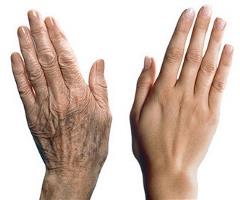
Rosie studied at the University of Sheffield and qualified in 2011. "Having been qualified for over three years, I've worked in five different practices, along with many older dentists. I'm always interested to see how other dentists work, and what works for them. I have written this article to share the different techniques and approaches used by dentists trained at different times."
As a young dentist working in practice, you may be surprised to find your more experienced colleagues doing things that you were firmly told not to do whilst being trained at dental school- and even more surprised when these things work! I remember being amazed to discover that I was the only dentist in the practice using rubber dam- however the root canal treatments performed by the other dentists seemed to work regardless. Here are a few areas where you may find yourself at odds with your older colleagues:
Prescriptions
They'll give out antibiotics "just in case", or when they're not sure of a diagnosis, or when the patient asks for them. You prescribe more fluoride toothpaste than amoxicillin.
Pins & Posts
If in doubt, they'll stick a pin in. Crown's snapped off? No problem - put in a post. You'll forget how to even use the pin gadget that goes on your hand-piece (if you ever knew how to use it in the first place) and will anxiously check for at least a 2mm ferrule for your post-crowns, or else it's a ˜retained root" and time to get the forceps out.
Fluoride varnish
Treated with great suspicion by older dentists, liberally applied to anyone over the age of 3 (possibly even under) by younger dentists- it's one part of the Toolkit that's easy to remember.
Radiographs
Do your patients question why you're taking x-rays when there's nothing wrong? Does it make them suspicious that you've found something? Just tell them it's routine and if pushed to check underneath your old fillings. It's not their fault, the last time they had bite-wings was so long ago they had to go into a different room for them.
Occlusion
Older dentists will expect a crown fit appointment to include occlusal adjustment. Young dentists will check the occlusion and if it's high leave it to "Dahl in" and tell the patient it'll take a few days to settle.
So who's in the right? Well, different techniques work for different dentists. I've been amazed how long post-crowns can last without a ferrule, but that doesn't mean I'm going to start making them that way. The couple of times I attempted to do a root canal treatment without a rubber dam I found it much more difficult than with one. We all know about the increasing problem of antibiotic resistance so I think some dentists could do to brush up on their FGDP guidelines and start saying "No" to patients. Fluoride varnish is quick and easy to apply, and I would bet that using it will be part of getting paid in the new contract system, so even if you don't believe the hype it seems here to stay. Personally, I often start to wonder whether I'm taking too many bite-wings, but every now and again I catch caries in a place I really didn't expect to find them and that reassures me I'm doing the right thing.
My advice on crowns is to find a good lab- the extra money in lab fees is worth the time you save adjusting them. And if the temporary crown came off before the fit, warn the patient the new crown will feel high for a few days and leave it to settle! Yes, I'm a young dentist and I will continue with the techniques I have been taught at dental school, which is of course exactly what the older dentists are doing too. Don't be too critical of them and (hopefully) they won't be too critical of you.
- Rosie Vickerton
- [email protected]